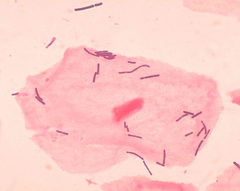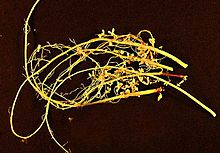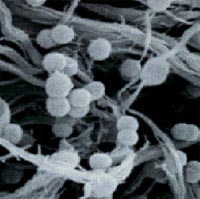Three Beneficial Bacteria:
Lactobacillus:
Lactobacillus species are used for the production of yogurt, cheese, sauerkraut, and other fermented foods. Lactobacillus is used for treating and preventing diarrhea. It is also used to prevent and treat diarrhea associated with using antibiotics. Some people use lactobacillus for general digestion problems, while others use it used for skin disorders such as fever blisters and canker sores. Many lactobacilli are unusual in that they operate using homofermentative metabolism this is why eating yogurt can sometimes improve your digestive system because lactobacillus is a bacteria that lives in our digestive, urinary, and genital systems without causing any diseases.
Rhizobia:
Rhizobia are soil bacteria that fix nitrogen after becoming established inside root nodules of legumes. Rhizobia require a plant host and they cannot fix nitrogen themselves. They are gram-negative, motile, non-sporulating rods. It is known that this bacteria is able to enrich the soil by contributing nitrogen through symbiotic nitrogen fixation by Rhizobium through centuries. Without this bacteria we would not be able to sustain the natural resources of the ecosystem.
Ruminococcu:
Ruminococcus are non-motile organisms with a coccoid shape. They are also non-motile bacteria. They obtain nutrients by breaking down cellulose that comes through the digestive system of the host organism. These organisms are also capable of fermenting glucose and xylose. Ruminococcus inhabits the rumen of cattle, sheep, and goats. These organisms allow their hosts to digest cellulose. Ruminococcus' cellulose degredation abilities are currently a major area of study. By understanding how these organisms degrade cellulose, farmers may be able to make advances in animal productivity. Ruminococcu is beneficial because without this animals like cows and sheep would not be able to digest most of the food that they eat like celluose.
SOURCES: http://www.buzzle.com/articles/beneficial-bacteria.html
http://www.indiaagronet.com/indiaagronet/manuers_fertilizers/contents/rhizobium.htm
http://microbewiki.kenyon.edu/index.php/Ruminococcus



No comments:
Post a Comment